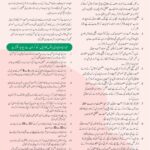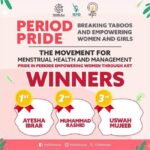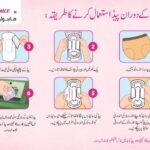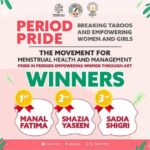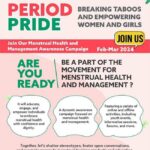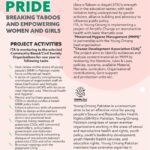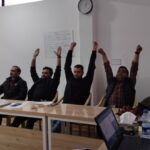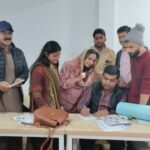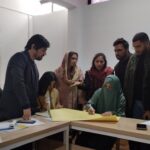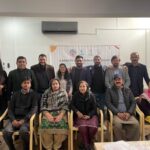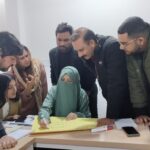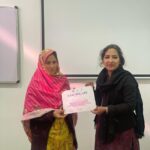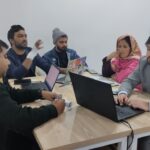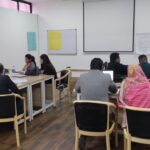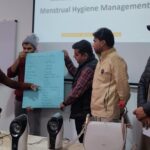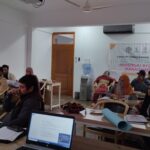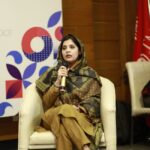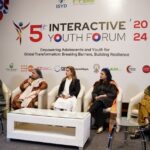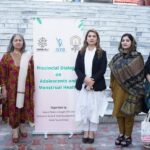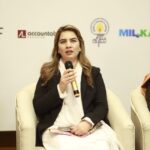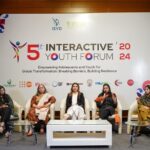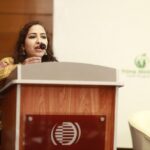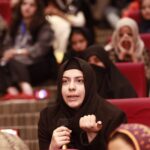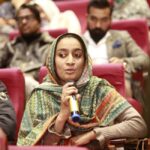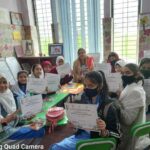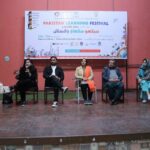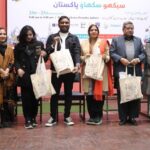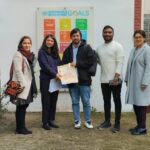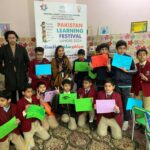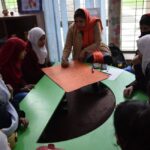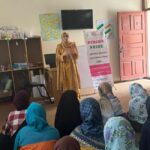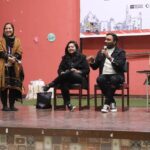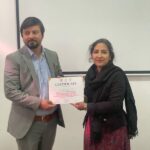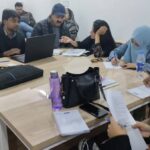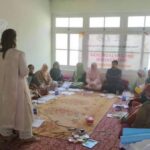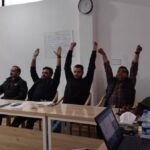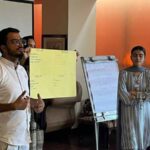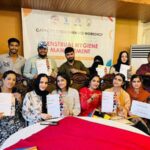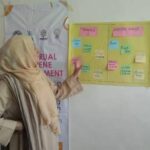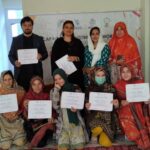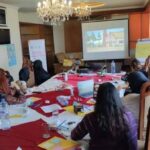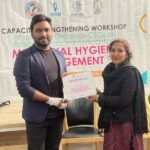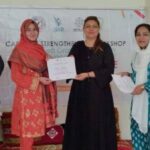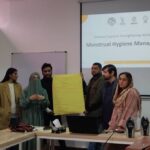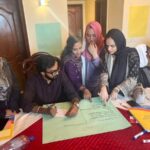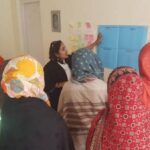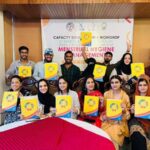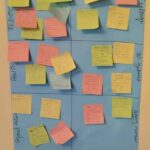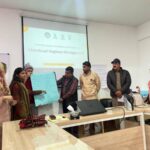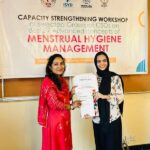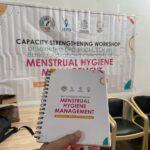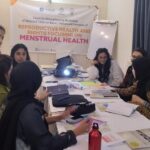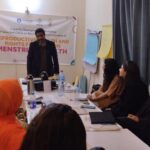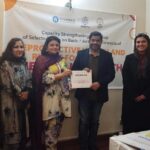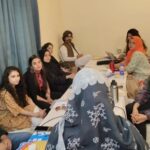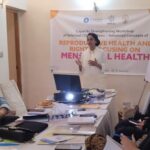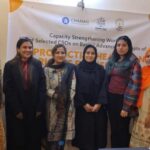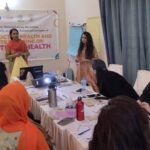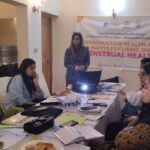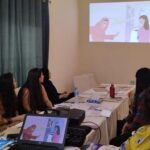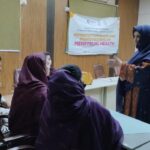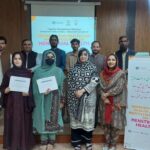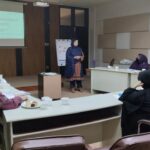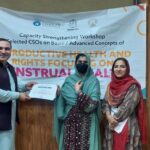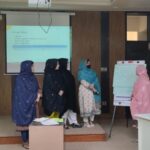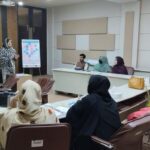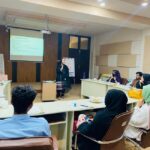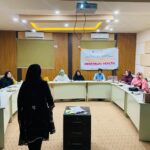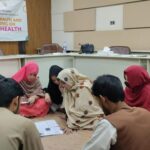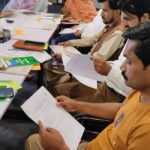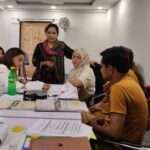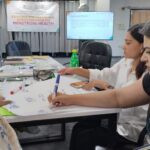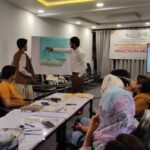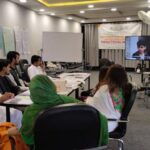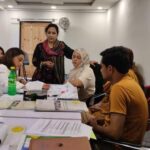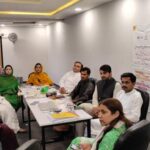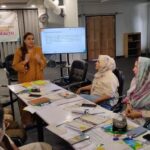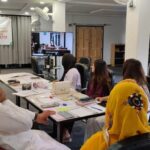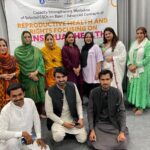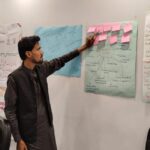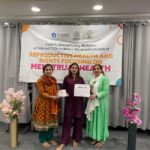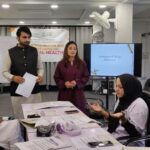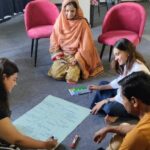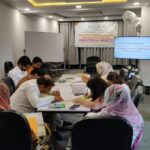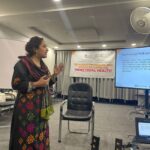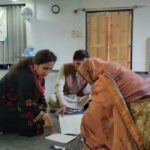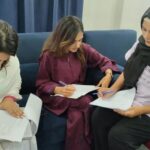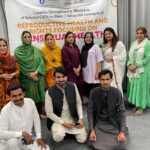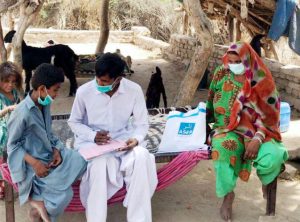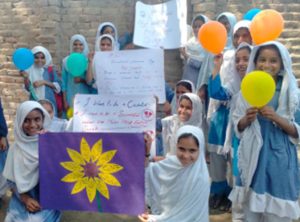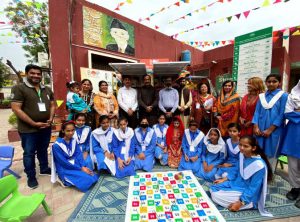Young Omang - ITA
(Supported by Amplify Change)
Young Omang Pakistan is a consortium aims to be an effective voice for young people’s Sexual and Reproductive Health Rights (SRHR) in Pakistan. Young Omang Pakistan comprises of seven member organizations that bring with them a combination of youth and experience, regional diversity and unique strengths working in the areas of sexual and reproductive health and rights, youth policy, youth’s leadership development, youth friendly health services, and education rights. Young Omang Pakistan members have extensive expertise in evidence-based advocacy and have engaged with policy members at national as well as provincial and grassroots level.
Young Omang Pakistan promises to be an inclusive platform with two important characteristics implicit in its name: a sense of urgency and agency.
The strategic priority is to empower grassroots CSOs through organizational strengthening support to a) capacitate themselves and b) carry out advocacy initiatives for integration of LSBE, eliminating early and child marriages, addressing stigma & discrimination, promoting menstrual health and YFHS that enhances better health of young people and their access to quality SRHR services and information.
Idara-e-Taleem-o-Aagahi (ITA) is one of an important partner of Young Omang it is a national and its strength lies in the education sector, with each initiative being underpinned by gender activism, alliance building and advocacy to influence public policy.
ITA, in Young Omang is implementing a project of Amplify Change on reproductive health with basic thematic area “Menstrual Hygiene Management (MHM)” in partnership with the Young Omang host organization “Chanan Development Association (CDA)”. The project aims to Identify evidences and analysis content/material on MHM by reviewing the literature, rules & Laws, policies, systems, available Material, Manuals, curriculum, Organizational contributions, Govt support and production units etc.
Project Activities
ITA is mentoring to the selected Community Based/Civil Society Organizations for one year in following tasks
- Desk review on the status of young people's SRHR in Pakistan mainly focus on Menstrual Health
- A series of capacity strengthening workshops of organization staff on Value Clarification and Attitude Transformation (VCAT) with focus on main thematic area "Menstrual Health and Hygiene".
- Mentor and facilitate grassroots CSOs to develop evidence based SRHR policy briefs
- Enhance advocacy skills of grassroots CSOs to design and implement advocacy campaigns in community, district and provincial level.
- Organize linking meetings of grassroots CSOs with concerned stakeholders, policymakers, government and diplomats
- Provincial Learning & networking dialogue of movements between grassroots CSOs and other networks
- Bi-annual meetings with the grassroots CSOs
- Bi-annual meetings with the grassroots CSOs
Project Host Organization: Chanan Development Association (CDA)
Project Duration: 3 Years (November 2022 – August 2025)
Project Area: Project is under the supervision of ITA head office Lahore but working areas are all over Pakistan from where the CSO will be selected each year.
1st Cohort 2023 (Selected)
- Institute for Social and Youth Development (ISYD)
(https://www.facebook.com/ISYDPakistan/)
(https://www.instagram.com/isydpakistan/)
(https://twitter.com/ISYDPakistan)
(https://pk.linkedin.com/company/isydpakistan) - Pakistan Sustainable Development Foundation (PSDF)
(https://www.facebook.com/psdf.pk1)
(https://pk.linkedin.com/company/pakistan-sustainable-development-forum)
(https://twitter.com/psdf_pak)
2nd Cohort 2024
3rd Cohort 2024-2025
- Fun-E-Mussawari
- Mahwari Justice
Awareness Campaign
صحت مندانہ ماہواری کے رہنما اصُول
کیا آپ جانتے ہیں پاکستان میں صرف 36٪ بچیوں اور عورتوں کو ماہواری سے متعلقہ صفائی کی اشیاء اور سہولیات تک رسائی حاصل ہے جس کی وجہ سے بچیوں اور عورتوں کو ماہواری کے حوالے سے صحت پر منفی نتائج کا سامنا کرنا پڑتا ہے اور اس کے ساتھ ساتھ ان کی تعلیمی سرگرمیاں اور معاشی مواقع بھی محدود ہو جاتے ہیں
اس حوالے سے گورنمنٹ اور سماجی اداروں نے ماہواری کے دوران صحت و ستھرائی کا خاص خیال رکھنے کی آگاہی فراہم کرنے پر کچھ کاوشیں بھی کی ہیں لیکن ادارہ ء تعلیم و آ گہی نے اس پر خصوصی آگاہی مہم کا آغاز کیا ہے کیونکہ ہم سب جانتے ہیں کی سیلاب کے دوران سب سے زیادہ بچیاں اور عورتیں متاثر ہوئیں جب انکے پاس ماہواری کے لیے کسی قسم کی اشیاء اور سہولیات موجود نہیں تھیں جس سے متعدی امراض اور بیماریاں پھیل گئی
- ۔ ماہواری ایک فطری عمل ہےاس دوران صحت مندانہ اقدامات کو اپنائیں اور کسی قسم کی من گھڑت باتوں اور فرسودہ ررسومات پر یقین نہ کرنا
- ۔ ماہواری کو زندگی کا باقاعدہ حصہ سمجھیں اوراپنے آگے آنے والے ہر موقع کا بھر پور فائدہ اٹھاتے ہوئے ہر سرگرمی میں شامل ہوں
- ماہواری کے دوران کپڑے یا پیڈ کو باقاعدگی کے ساتھ ہر 6 سے 8 گھنٹوں کے بعد تبدیل کریں اور نہانے کو معمول بنائیں تا کہ انفیکشن ، جراثیم کے پھیلاؤ اور بیماریوں کا خطرہ کم سے کم ہو۔
- ماہواری کے دوران مناسب غذا کا استعمال کرنا خصوصا آئرن اور پروٹین بڑھانے والی اشیاء مثلاًپھل، ہرے پتوں والی سبزیاں، پانی کا وافر استعمال، چکن، مچھلی، ڈرائی فروٹ، دالیں اور دہی وغیرہ
- ۔ ایسی اشیاء کا استعمال کم کر دیں جو درد کو بڑھانے کا موجب بنتی ہیں مثلًا نمک اور شوگر کا زیادہ استعمال، مصالحے دار کھانے، سرخ گوشت وغیرہ
- ماہواری کےدرداور کھچاؤ کو کم کرنے کے لیے دوائیوں کی نسبت گھریلو ٹوٹکے استعمال کریں جیسا کہ مناسب ورزش، گرم پانی کی ٹکور، کمر کی مساج، گرم پانی سے نہانا اور ادرک اور پودینے کے قہوہ کا استعمال وغیرہ
- یاد رکھیے ماہواری کی درد سب بچیوں کو ایک جیسی نہیں ہوتی بلکہ کسی کو کم، کسی کو زیادہ اور کسی کو بالکل نہیں ہوتی
- ۔ ایک ماہواری سے دوسری ماہواری کا دورانیہ کم سے کم 23 سے 28 دن اور زیادہ سے زیادہ 30 سے 35 دن ہوتا ہے
- ۔ ماہواری کا دورانیہ ایک ماہواری شروع ہونے کے پہلے دن سے اگلی ماہواری شروع ہونے تک ہوتا ہے
- پیڈ کواستعمال کے بعد کاغذمیں لپیٹ کر کوڑے دان کے اندر پھینکیں اور کپڑے کو دوبارہ استعمال کرنے کے لیے اچھی طرح دھو کر دھوپ میں لازمی سکھائیں
- ۔ ماہواری کی ایمرجنسی کو سمجھتے ہوئے اپنی ایک ذاتی کٹ ہر وقت اپنے پاس رکھیں تا کہ پریشانی سے بچا جا سکے
- ۔ ماہواری کی ایمرجنسی کو سمجھتے ہوئے اپنی ایک ذاتی کٹ ہر وقت اپنے پاس رکھیں تا کہ پریشانی سے بچا جا سکے
اپنے ارد گرد کے لوگوں کو بھی ان صحت مندانہ اقدامات کی آگاہی فراہم کرتے رہیں اور یاد رکھیں یہ ایک قدرتی عمل ہے۔
Awareness on healthy menstruation
| Plan of Advocacy Campaign on MHM – Cohort 1 | |||
| S# | Activity | Content Type | No. of activities |
| 1 | Campaign Launch | Plannery session and awareness Sessions with PLF participants | 8 |
| 2 | Introductory video to call for campaign launch/promotion | Content for video | 1 |
| Kick of with the constituency , talk/workshop | 1 | ||
| Design poster for 9 points Charter of demand Printing of flyers | 1 | ||
| 3 | Digital media posts on 1. Health and Hygiene Messages 2. Prevention from Infections, diseases specially PCOS (emotional and physical wellbeing) 3. Adolescents health | Webinars with Experts, Health professionals, Academics, NGO representatives and other relevant stakeholders Short Videos\ 2-3 mins from youth Ambssadors, SM influencers, Artists and seniors | Daily Post with hashtags 9 Webinars 9 Digital Posters 9 Videos |
| 4 | Radio Shows and Tv Talk | 2 from ISYD 2 from PSDF | 2 TV shows 2 Radio shows |
| 5 | Articles and Blogs | Articles/blogs from Youth, Seniors and fellows | 5 each month |
| 6 | Art competition | Digital Posters / Drawings | 1 |
| 7 | Stories on myths and misconceptions (also short videos from survivors) | Call for submission and Collection from schools | 12 selected stories/videos will be highlighted on social media |
| 8 | Lincon Corner talks | Tanveer, fatima and Joshua will lead the talk | 1 each month |
| 9 | Animated awareness video | Video on Menstrual health and importance of education | 1 |
| 10 | YEP (Youth Engagement Event) | Panel Discussions, key note | 5 |
| Speakers, | 5 | ||
| Video Messages | 20 | ||
| Theater | 1 | ||
| 11 | Forum Launching Video | Pledge Document (5 mins) | 1 |
| 12 | Community Sessions\Dialogues | Adolescents Wellbeing and MHM | 2 in each month |
| 13 | SMS service | Message design Network selection | |
Plans
Policy Brief - Cohort 1
Title: Elevating Adolescents/Pre-adulthood Health and Hygiene: A Call to Action
Background:
Adolescent health and hygiene pose significant challenges in Pakistan, casting a wide net of implications for the well-being of both young boys and girls. This report delves into the intricate tapestry of health and hygiene, addressing critical facets such as menstrual health and management, education, and cultural taboos.
A thorough analysis of UNICEF SMS Poll[1] exposes substantial gaps in adolescent health practices. A mere 32% of schools in Pakistan offer separate facilities for both genders, highlighting a compelling need for enhanced infrastructure. Moreover, sanitary practices are lacking, with less than 20% of adolescent females using sanitary pads, and less than 50% possessing adequate knowledge about menstruation. This underscores a pervasive gap in health education that affects both boys and girls.
The repercussions of subpar hygiene practices extend beyond menstrual health, leading to an augmented risk of Reproductive Tract Infections (RTIs) among adolescent girls and boys alike. Cultural taboos persist, creating obstacles to open discussions and support-seeking behaviors among young individuals.
Access to menstrual hygiene products and facilities is still a challenge in many parts of Pakistan, particularly in rural areas. According to a 2021 report by the Water Aid organization, only 36% of girls and women in Pakistan have access to adequate menstrual hygiene products and facilities. This lack of access can result in negative health consequences and can also impact education and economic opportunities for women and girls. There have been some efforts by the government and civil society organizations to address the issue of menstrual hygiene in Pakistan.
While commendable efforts have been exerted by stakeholders, including governmental and non-governmental organizations, persistent challenges remain. The accessibility of essential hygiene products and facilities remains a hurdle, particularly in rural areas, impacting the health, education, and economic prospects of young boys and girls.
Despite strides in progress, cultural barriers endure, shaping perceptions and behaviors around health practices for both adolescent boys and girls. Overcoming these barriers is paramount for cultivating improved health practices and elevating the overall well-being of young individuals in Pakistan.
Moving forward, it is imperative to extend education and awareness initiatives tailored for both adolescent boys and girls, addressing their specific health and hygiene needs. Only through an inclusive approach can we bridge the existing gaps and pave the way for a healthier, more informed future.
As per ITA’s research for Desk review report[2] (prepared by reviewing available information, policies, Govt contribution and Civil Society work), some of the significant things can be seen like using of modern products, regular taking bath and frequently changing of pads are still under the line practices. Educational institutions have to organize special awareness sessions or classes for accurate and adequate knowledge. Although Pakistan is rich in cultural diversities so the practices in different regions are as per their local practices.
[1] https://www.unicef.org/innovation/U-Report/menstrual-hygiene-polls-pakistan
[2] https://itacec.org/wp-content/uploads/2024/01/MHM-Desk-Review-final-Report-ITA-2023.pdf
Call to Action:
- Incorporate Comprehensive Health and Hygiene Education in School Curricula:
- Advocate for the inclusion of age-appropriate, gender-sensitive health and hygiene education in school curricula.
- Cover topics such as puberty, reproductive health, and menstrual hygiene management to empower both adolescent boys and girls with essential knowledge.
- Establish Sanitation Standards and Facilities in Educational Institutions:
- Set and enforce standards for sanitation facilities in all educational institutions, ensuring separate and well-maintained facilities for both boys and girls.
- Allocate funds for the improvement of existing infrastructure to provide a hygienic environment conducive to overall well-being.
- Promote Access to Hygiene Products:
- Implement initiatives to make essential hygiene products, including sanitary pads, readily available and affordable, especially in rural areas.
- Collaborate with private enterprises and NGOs to facilitate the distribution of these products in schools and communities.
- Integrate Menstrual Hygiene Management (MHM) Guidelines:
- Integrate MHM guidelines into existing health and hygiene programs at the national level.
- Ensure that schools follow these guidelines, providing necessary products and facilities for effective menstrual hygiene management.
- Foster Awareness Programs and Community Engagement:
- Launch nationwide awareness campaigns focused on health and hygiene, targeting adolescents, parents, and educators.
- Encourage community engagement to break cultural taboos and promote open discussions around reproductive health.
- Allocate Budgetary Resources for Implementation:
- Allocate dedicated budgetary resources for the implementation of health and hygiene education programs, sanitation improvements, and access to hygiene products.
- Monitor and evaluate the effectiveness of these initiatives regularly, adjusting strategies as needed.
- Incorporate Teacher Training Programs:
- Develop and implement training programs for educators to equip them with the knowledge and skills to deliver effective health and hygiene education.
- Emphasize the importance of creating a supportive and open environment for discussing health-related topics in schools.
- Collaborate with Stakeholders:
- Collaborate with governmental departments, NGOs, and private sector entities to create a coordinated effort in promoting adolescent health and hygiene.
- Leverage existing partnerships and establish new collaborations to maximize impact and reach.
- Periodic Evaluation and Adaptation:
- Establish a monitoring and evaluation framework to assess the impact of implemented programs.
- Use feedback from students, educators, and communities to adapt strategies and address emerging challenges.


